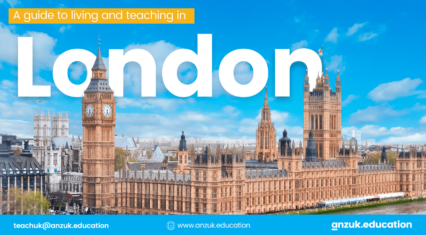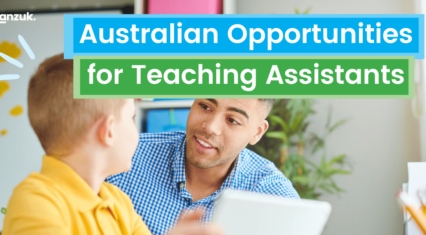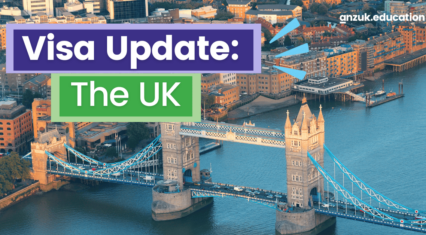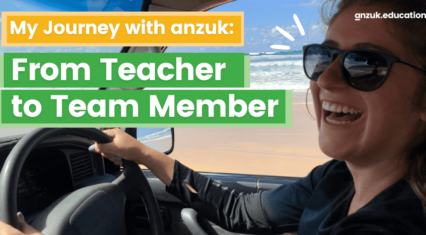Search
Get Started
Lockdown, where to now?
Let’s take a deep breath and begin by reminding ourselves that we are allowed to feel frustration, disappointment, uncertainty and/or despondency. We want to do what we love to do: Deliver exceptional education in the classroom, and have stability in our work life. As casual relief teachers, we have had to be immensely flexible during lockdowns. It is uncomfortable and it can be stressful. Acknowledged.
Now, let’s do what we can with what we have, to cultivate a mindset of not staying stuck, and flip adversity so that it works in favour of our wellbeing. This Lockdown, let’s focus our attention on the overlap between what is in your control, and what matters. Lockdown is not in our control, but pursuing our Wellness is. One of the most simple and powerful ways to achieve this is through the evidence-based wellbeing intervention of Gratitude.
Gratitude and Evidence-Based Wellness
Gratitude is a tendency toward appreciating the positive in life, and thinking or writing about what you are grateful for over a period of time. It has shown to have a positive effect on wellbeing, life satisfaction, optimism, beneficial to health and be cost effective. It is also linked to reduced anxiety, stress and depression (Journal of Alternative and Complementary Medicine).
Along with mindfulness, Positive Psychology has identified gratitude as a potential intervention for wellbeing. A gratitude and mindfulness study found, “that heartfulness is an important underlying mechanism of mindfulness: it seems to foster higher levels of psychological well-being, or optimal human functioning, through a warm and aware attitude towards the self and others.” (Springer Nature Group)
“During the current pandemic, it has been widely advised to engage in self-care activities to reduce stress, along with maintaining a healthy lifestyle as a protective factor against the virus complications”(MDPI) One of these key selfcare interventions is by maintaining a gratitude diary / grateful reflections, with the wellness-effect accentuated by handwriting them.
Neuroscience, Brain Activity and Handwriting
The University of Tokyo reports (March 2021) that “writing by hand increases brain activity in recall tasks over taking notes on a tablet or smartphone. Additionally, those who write by hand on paper are 25% quicker at note-taking tasks than those who use digital technology.
Actually, paper is more advanced and useful compared to electronic documents because paper contains more one-of-a-kind information for stronger memory recall,” said Professor Kuniyoshi Sakai, a neuroscientist at The University of Tokyo and corresponding author of the research recently published in Frontiers in Behavioural Neuroscience. The research was completed with collaborators from the Frontiers Institute of Management Consulting.
Contrary to the popular belief that digital tools increase efficiency, volunteers who used paper completed the note-taking task about 25% faster than those who used digital tablets or smartphones. Researchers say paper notebooks contain more complex spatial information than digital paper.
Physical paper allows for tangible permanence, irregular strokes, and uneven shape, like folded corners. In contrast, digital paper is uniform, has no fixed position when scrolling, and disappears when you close the app.”
So can we keep gratitude simple, and enjoy all these neuroscience benefits?
Absolutely. Find a paper notepad/journal and a pen. Spend a few mindfulness moments each day to ponder, what are 3 things I am grateful for today? The key is that a moment of gratitude does not need to be complicated. In fact, it’s the opposite. Finding gratitude in the most simple of moments within your daily experiences. The point is to build a daily habit of this that you enjoy, so you may like to begin with 1 gratitude affirmation a day, and build on this.
Everyday, cultivate your mindset, find different moments of gratitude and this will help build a strong neural pathway in your brain geared towards expressing gratitude. Write them down.
Sitting at home today, these are three gratitudes I have written down:
- I am grateful for a chair to sit on.
- I am grateful for access to the internet.
- I am grateful for seeing colour with my eyesight.
What will you write? Here are a few prompts to get you started:
- “Today, I am grateful for…….”
- “I am grateful for using….”
- “I am grateful for having….”
- “Something I am grateful for is…”
- “Someone I am grateful for is…”
Self care. Look after yourself. Do what you can, with what you have. The anzuk a-Team is doing everything they can for us too. We’re in this together. Pursue your wellness with gratitude journaling.
References:
Bermejo-Martins, E., Luis, E. O., Sarrionandia, A., Martínez, M., Garcés, M. S., Oliveros, E. Y., … & Fernández-Berrocal, P. (2021). Different Responses to Stress, Health Practices, and Self-Care during COVID-19 Lockdown: A Stratified Analysis. International Journal of Environmental Research and Public Health, 18(5), 2253.
Swain, N., Lennox Thompson, B., Gallagher, S., Paddison, J., & Mercer, S. (2020). Gratitude Enhanced Mindfulness (GEM): A pilot study of an internet-delivered programme for self-management of pain and disability in people with arthritis. The Journal of Positive Psychology, 15(3), 420-426.
O’Leary, K., & Dockray, S. (2015). The effects of two novel gratitude and mindfulness interventions on well-being. The Journal of Alternative and Complementary Medicine, 21(4), 243-245
Voci, A., Veneziani, C. A., & Fuochi, G. (2019). Relating mindfulness, heartfulness, and psychological well-being: the role of self-compassion and gratitude. Mindfulness, 10(2), 339-351.
Umejima, K., Ibaraki, T., Yamazaki, T., & Sakai, K. L. (2021). Paper notebooks vs. mobile devices: Brain activation differences during memory retrieval. Frontiers in Behavioral Neuroscience, 15, 34.






